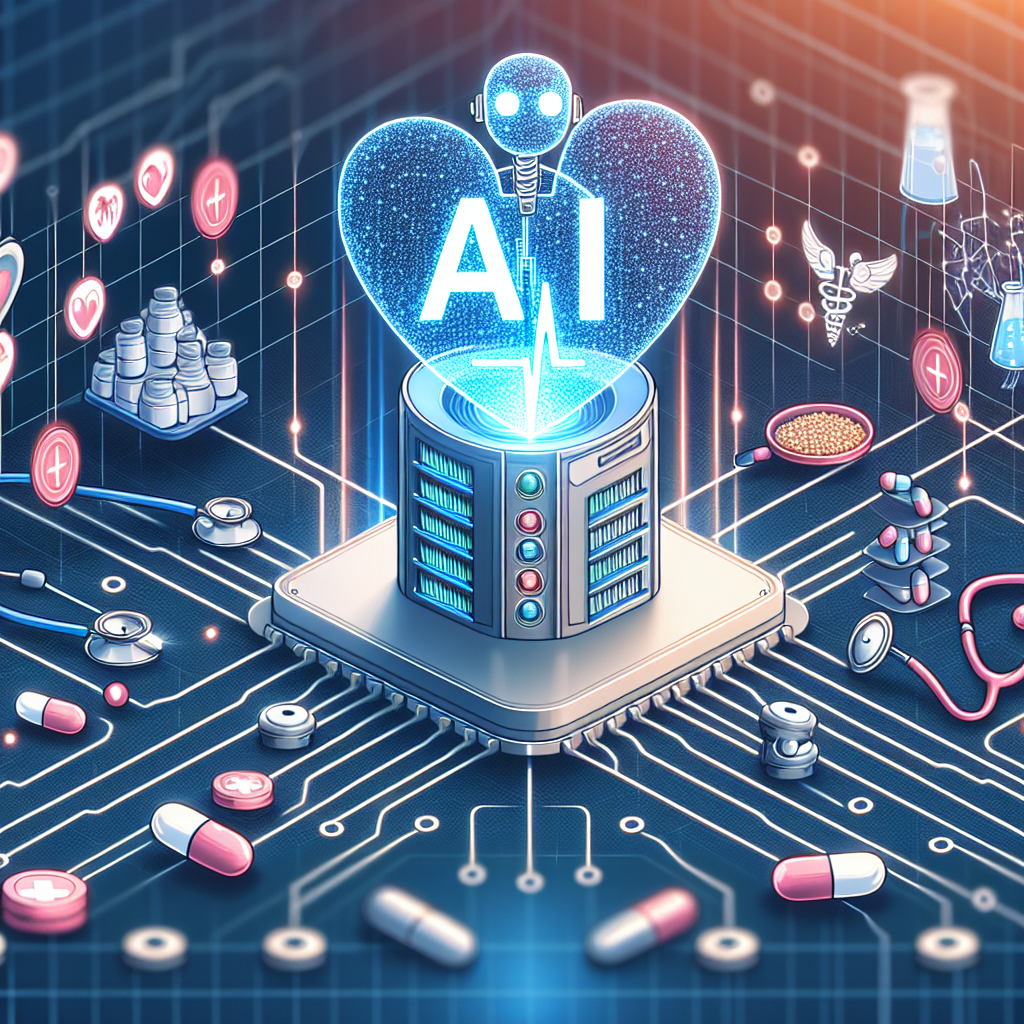Artificial Intelligence (AI) has been revolutionizing various industries, and healthcare is no exception. With the increasing amount of data being generated in the healthcare sector, AI has the potential to transform how healthcare data is managed, leading to improved patient care, better outcomes, and reduced costs. In this article, we will explore the impact of AI on healthcare data management, its benefits, challenges, and the future of AI in healthcare.
AI in Healthcare Data Management
Healthcare data management involves collecting, storing, analyzing, and sharing data to support clinical decision-making, research, and administrative functions. AI technologies, such as machine learning and natural language processing, can automate and streamline these processes, making healthcare data management more efficient and effective.
One of the key applications of AI in healthcare data management is in predictive analytics. By analyzing large volumes of patient data, AI algorithms can identify patterns and trends that may not be apparent to human analysts. This can help healthcare providers predict and prevent diseases, optimize treatment plans, and improve patient outcomes.
AI can also improve the accuracy and efficiency of medical coding and billing. By automating these tasks, AI can reduce errors, ensure compliance with regulations, and accelerate the reimbursement process. This can help healthcare organizations save time and resources, while also improving revenue cycle management.
Furthermore, AI can enhance clinical decision support systems by providing real-time insights and recommendations based on the latest evidence and best practices. This can help healthcare providers make more informed decisions, reduce medical errors, and improve patient safety.
Benefits of AI in Healthcare Data Management
There are several benefits of using AI in healthcare data management, including:
1. Improved patient care: AI can help healthcare providers deliver personalized and evidence-based care, leading to better outcomes for patients.
2. Enhanced efficiency: AI can automate routine tasks, such as data entry and analysis, allowing healthcare professionals to focus on more complex and critical tasks.
3. Cost savings: By streamlining processes and reducing errors, AI can help healthcare organizations save time and resources, leading to cost savings.
4. Better decision-making: AI can provide insights and recommendations that can help healthcare providers make more informed decisions, leading to improved patient safety and outcomes.
Challenges of AI in Healthcare Data Management
While AI has the potential to transform healthcare data management, there are also challenges that need to be addressed, including:
1. Data privacy and security: Healthcare data is highly sensitive and confidential, and it is crucial to ensure that AI systems comply with privacy regulations and protect patient data from unauthorized access.
2. Data quality and reliability: AI algorithms are only as good as the data they are trained on, and it is essential to ensure that the data used is accurate, complete, and representative of the population being studied.
3. Ethical considerations: AI algorithms can sometimes produce biased or discriminatory results, and it is important to address ethical issues, such as fairness, transparency, and accountability, in the development and deployment of AI systems in healthcare.
4. Integration with existing systems: Healthcare organizations may face challenges in integrating AI technologies with their existing systems and workflows, and it is important to ensure seamless integration to maximize the benefits of AI in healthcare data management.
Future of AI in Healthcare
The future of AI in healthcare looks promising, with continued advancements in technology and increasing adoption of AI solutions by healthcare providers and organizations. Some potential areas where AI can have a significant impact in healthcare data management include:
1. Precision medicine: AI can help healthcare providers deliver personalized and targeted treatments based on individual genetic, lifestyle, and environmental factors, leading to more effective and efficient care.
2. Population health management: AI can help healthcare organizations analyze population health data to identify at-risk populations, predict disease outbreaks, and develop preventive interventions to improve public health outcomes.
3. Remote monitoring and telemedicine: AI can enable remote monitoring of patients’ health data, allowing healthcare providers to deliver care virtually and proactively manage chronic conditions, reducing hospital readmissions and improving patient satisfaction.
4. Drug discovery and development: AI can accelerate the drug discovery process by analyzing vast amounts of biomedical data, identifying potential drug targets, and predicting the efficacy and safety of new drugs, leading to faster and more cost-effective drug development.
FAQs
Q: How can AI improve patient outcomes in healthcare?
A: AI can improve patient outcomes in healthcare by providing personalized and evidence-based care, predicting and preventing diseases, optimizing treatment plans, reducing medical errors, and improving patient safety.
Q: What are some examples of AI applications in healthcare data management?
A: Some examples of AI applications in healthcare data management include predictive analytics, medical coding and billing automation, clinical decision support systems, precision medicine, population health management, remote monitoring, and drug discovery and development.
Q: What are the challenges of using AI in healthcare data management?
A: Some challenges of using AI in healthcare data management include data privacy and security, data quality and reliability, ethical considerations, and integration with existing systems.
Q: What is the future of AI in healthcare?
A: The future of AI in healthcare looks promising, with continued advancements in technology and increasing adoption of AI solutions by healthcare providers and organizations. AI has the potential to transform healthcare data management, leading to improved patient care, better outcomes, and reduced costs.
In conclusion, AI has the potential to transform healthcare data management, leading to improved patient care, better outcomes, and reduced costs. By leveraging AI technologies, healthcare organizations can automate and streamline processes, deliver personalized and evidence-based care, and make more informed decisions. While there are challenges to overcome, the future of AI in healthcare looks promising, with continued advancements in technology and increasing adoption of AI solutions. As AI continues to evolve, it is essential for healthcare providers and organizations to embrace these technologies and harness their full potential to improve patient outcomes and advance the field of healthcare.

